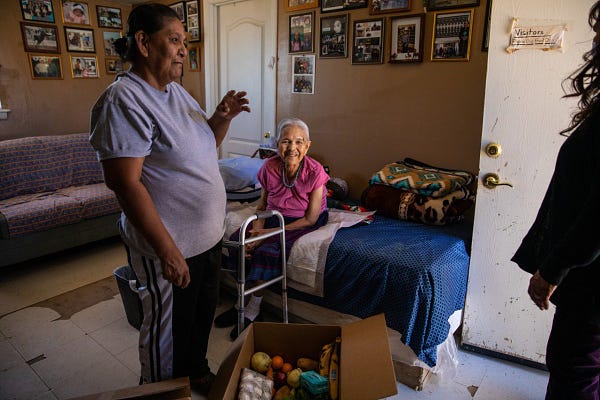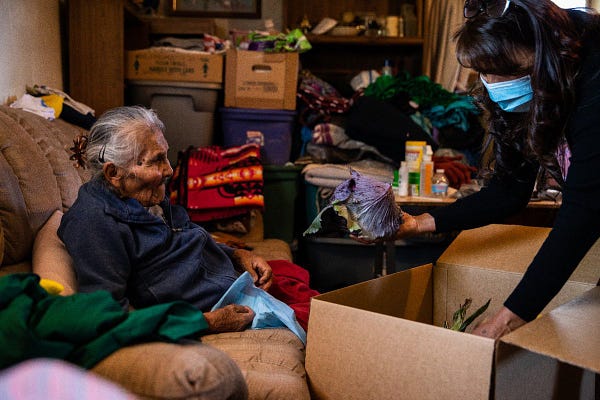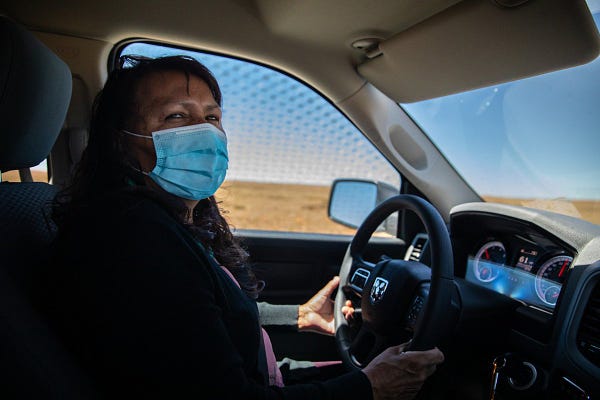What I’m thinking about
Your parents may eventually want or need to move out of their home and into a senior living facility. I think it’s normal for this transition to feel inevitable (and for that inevitability to be stressful), but I also think it’s helpful to know that it’s not: Almost everyone in the United States lives at home during almost all of later life.
(Note: I’m using senior living facility here as a broad term to describe a range of housing from independent living communities, which provide almost no medical care, to skilled nursing facilities, which provide a lot of medical care.)
About 50 million Americans are at least 65 years old. Over 90 percent of those people live at home – and the vast majority say they want to stay there. Looking ahead a bit: About half of the 6 million Americans who are least 85 years old still live at home. And I can’t find great data on this, but I don’t think it’s a stretch to say most residents at senior living facilities – of whom there are less than 5 million – are in this older group.
I’m optimistic that senior living will become a more attractive and affordable housing option over time. But we also need to do more to support all the people who will spend later life at home – without simple, centralized access to the services and support that a senior living facility can provide.
Here’s just one example: As our parents’ abilities change due to illnesses or injuries, their home should change with them. Two single-family homes featured in the interior design magazine Dwell provide an aspirational playbook: Both homes were extensively renovated to meet the needs of homeowners with disabilities – one of whom was diagnosed with Alzheimer’s disease in later life.
This issue’s resource includes a directory of contractors that modify homes to achieve similar goals at a more accessible price point. I think we need more of this stuff – way more of this stuff. Everybody deserves a good playbook, you know?
Talk soon,
Libby
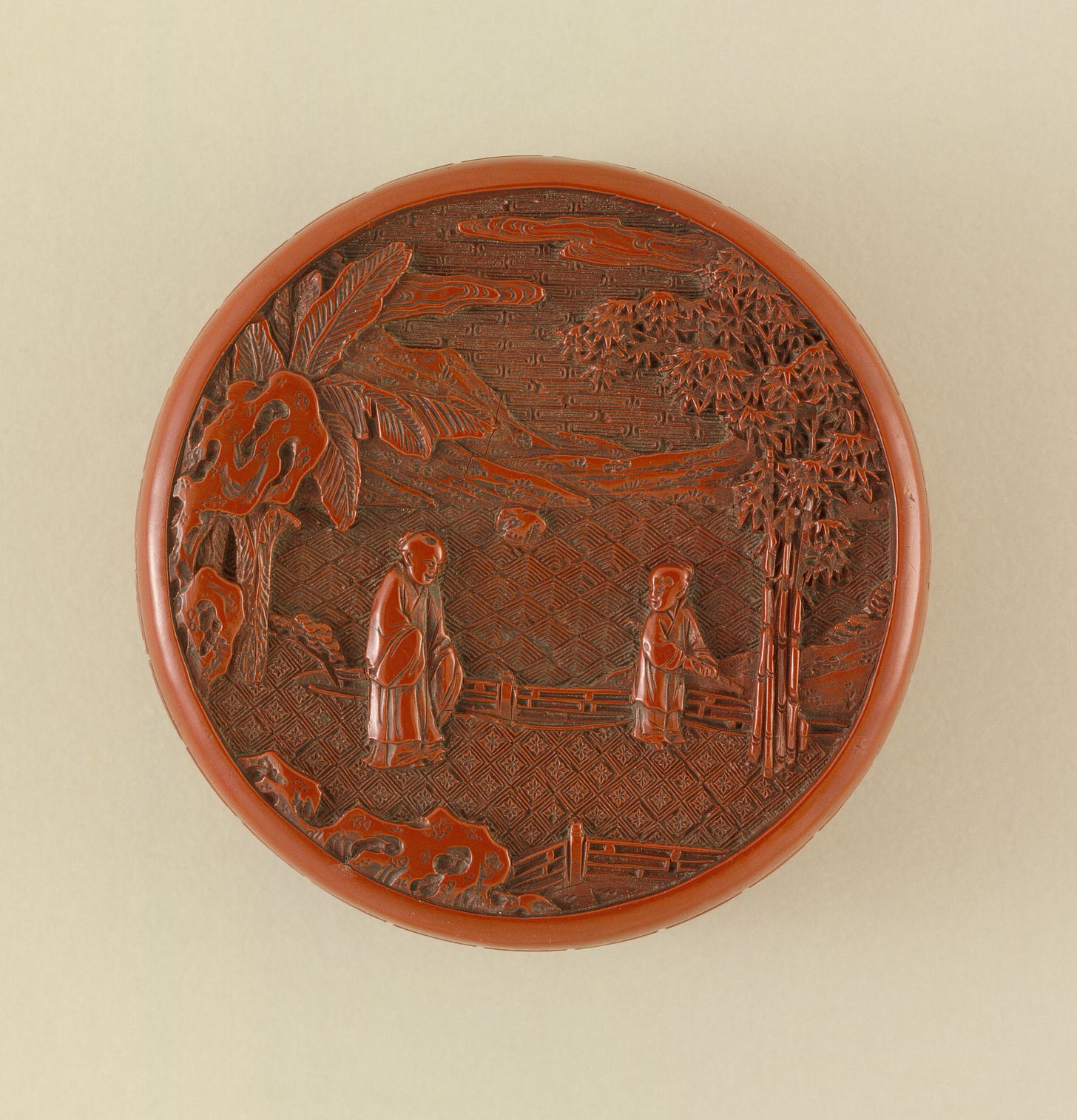
Small Box (He) with Elderly Woman and Young Boy Tending Bamboo in a Garden China, 1736-1795 (Los Angeles County Museum of Art)
What I’m reading this week
One Good Resource

Homemods.org is a project from University of Southern California’s School of Gerontology, which operates a “Fall Prevention Center of Excellence.” The project provides several resources related to modifying your home to prevent falls and/or better accommodate limited mobility. There’s helpful information throughout the site, but I’ll point you directly to their resources page and their well-organized directory of home modification contractors, which has hundreds of options in almost every state.
One Good Quote
“Illness is the night-side of life, a more onerous citizenship. Everyone who is born holds dual citizenship, in the kingdom of the well and in the kingdom of the sick. Although we all prefer to use only the good passport, sooner or later each of us is obliged, at least for a spell, to identify ourselves as citizens of that other place.”
The opening lines of Susan Sontag’s 1978 essay, “Illness as Metaphor.”
One Good Book
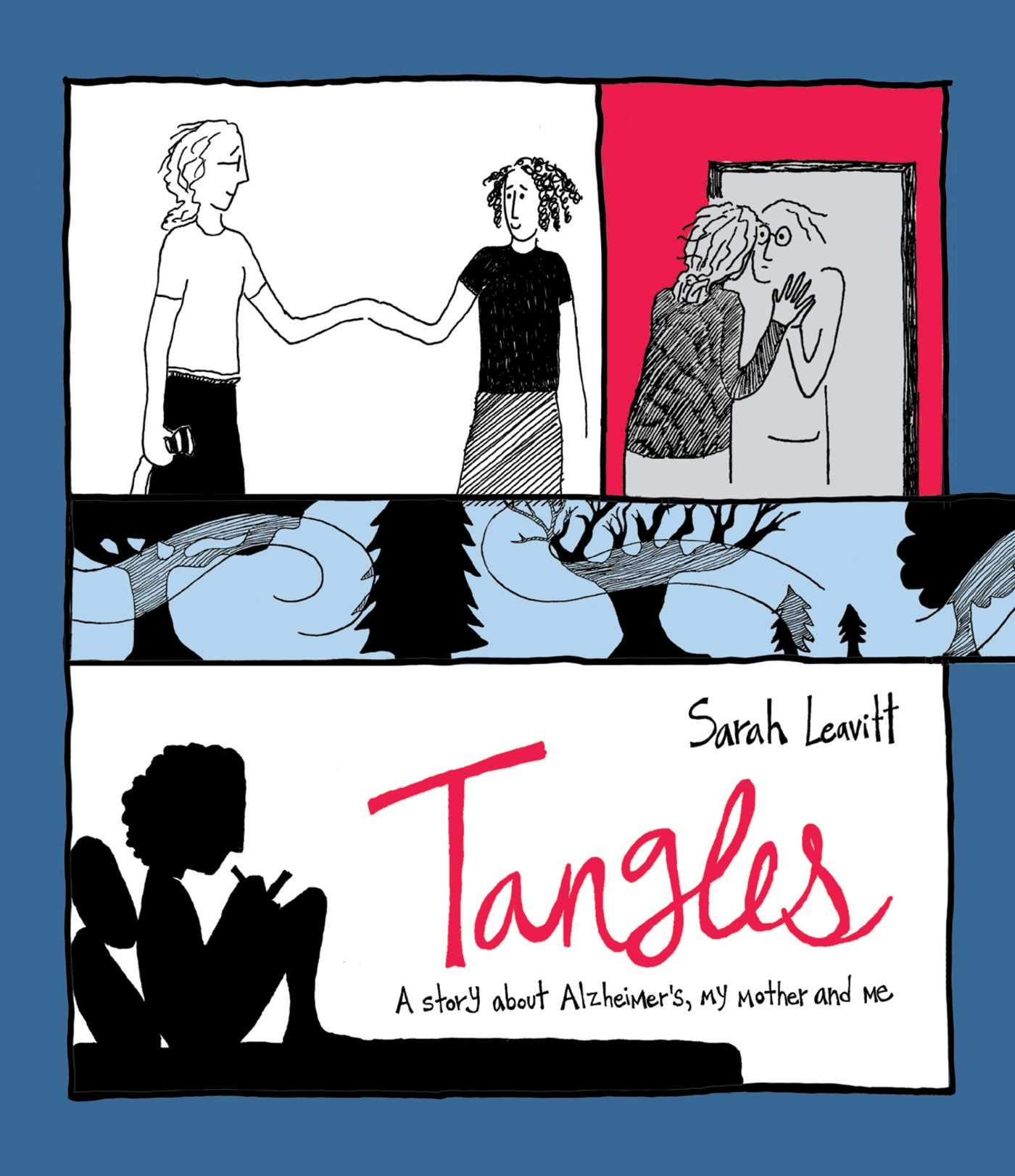
“Tangles: A Story about Alzheimer’s, My Mother, and Me” by Sarah Leavitt
It occurs to me that this is the second graphic memoir I’ve shared in this newsletter. (The first was Roz Chast’s “Can’t We Talk About Something More Pleasant?” in Issue 1.) Unusual! But I’m going with it. This one is shorter, but just as heartfelt. Sarah’s story matches mine in a few ways – including that she was living far away from her childhood home when her mom got sick – and so many of her stories remind me of experiences that I had as I watched my mom’s Alzheimer’s progress. I last read this several years ago, but I still get a little ‘punch in the gut’ feeling when I think about it.
One Good Ad
I’d love to share your business, product, or service with the people who read this newsletter. Reply to this email to get in touch.
Are you worried about your parents? I want to help. Through my business, Quilt, I offer a new kind of online support for people who care for their aging parents that includes phone or video check-ins & unlimited support over email.
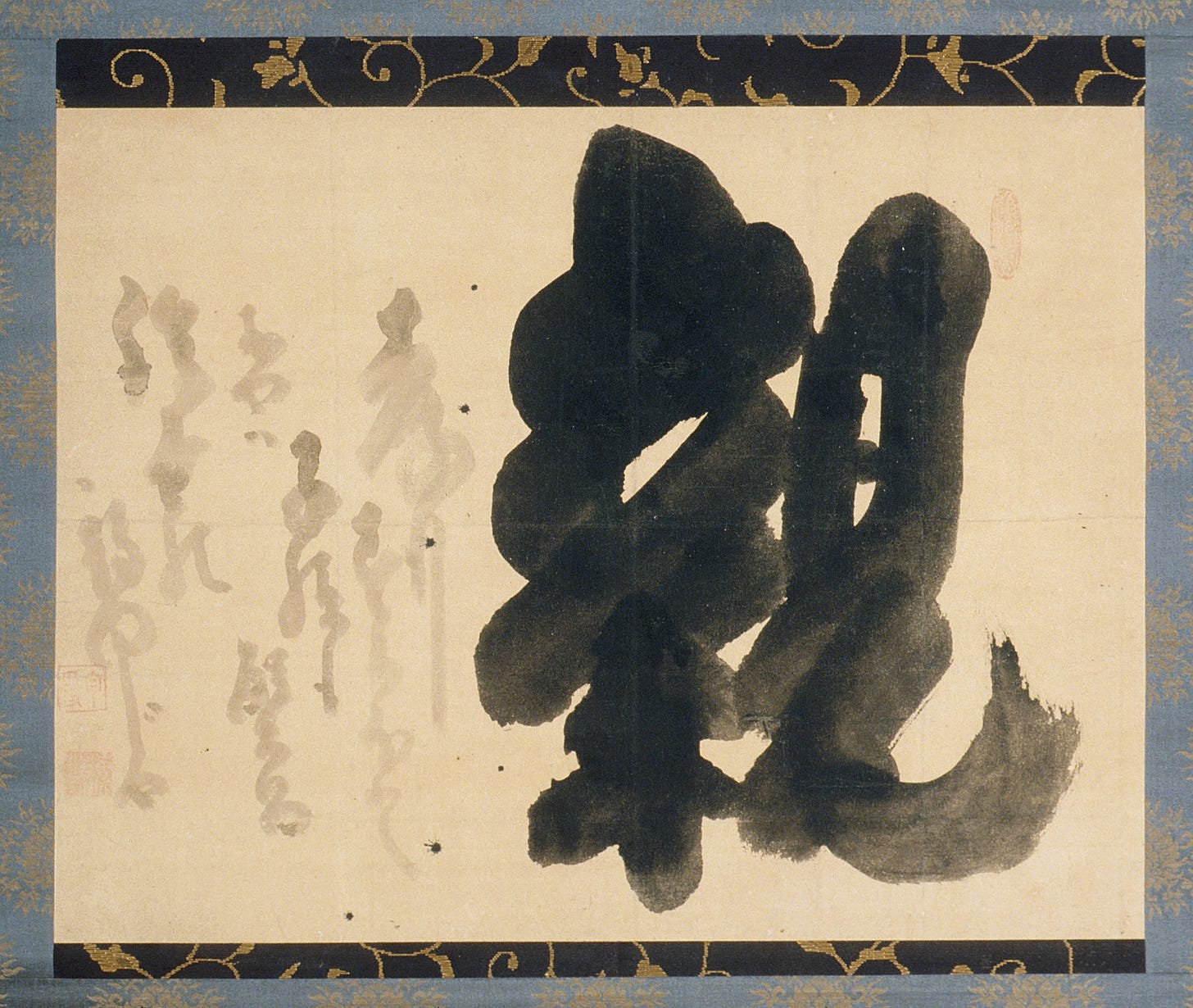
Oyakōkō: Love for One's Parents, Hakuin Ekaku, 1685-1768 (Los Angeles County Museum of Art)
One More Thing

